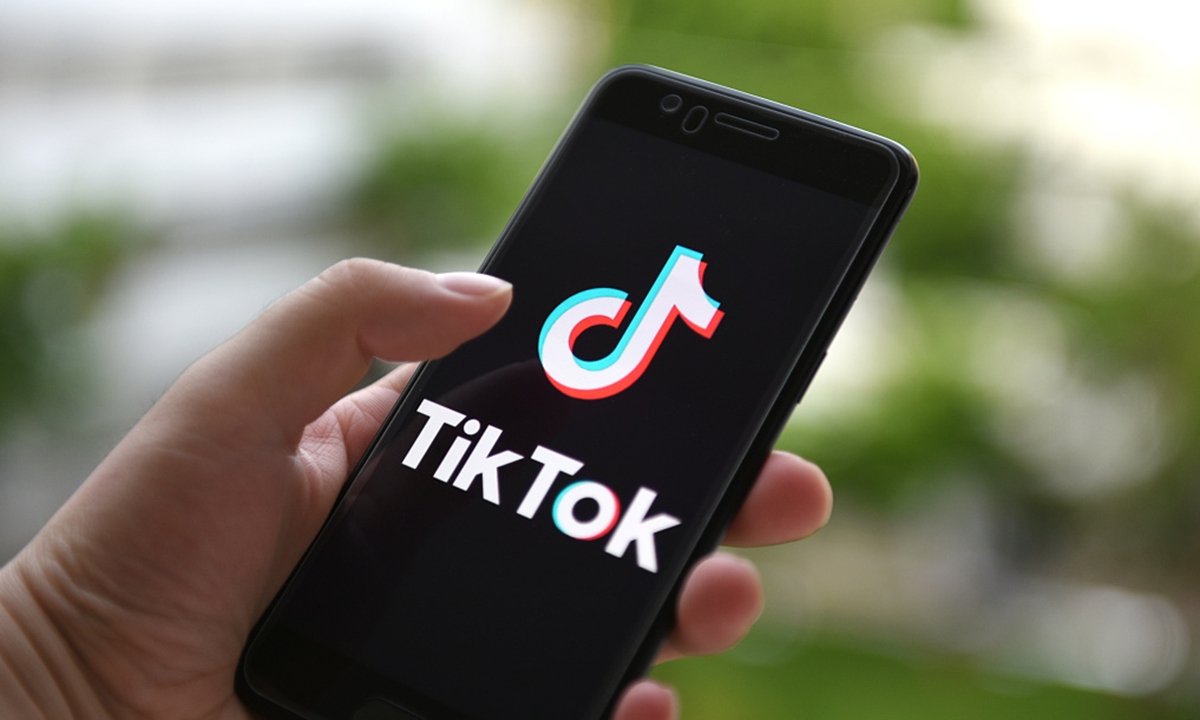
TikTok Photo:VCG
Surviving from the crackdown lead by Trump administration, Chinese video-sharing app TikTok, although still facing uncertainty about its destiny in the US, seemed prepared to take the next move: making foray into the e-commerce sector in the US based on its huge traffic.
TikTok is planning an aggressive expansion into e-commerce in the US, the Financial Times reported Monday, citing people who have seen the app's plans for new features that it will introduce this year.
Among those features is a tool that allows TikTok's most popular users to share links to products and automatically earn commissions on sales, according to the report. The platform plans to launch "live-streamed" shopping, a mobile phone version of television shopping channels, where users can buy goods with a few taps. It's also seeking to let brands show their catalogs, according to the report.
"It's within expectations that TikTok is planning to take the move toward e-commerce," Zhang Yi, CEO of Shenzhen-based iiMedia Research, told the Global Times.
"The business logic of TikTok's e-commerce attempt holds water and it represents the most advanced productive force in the mobile retail sector, which has been quite developed in China but still not that popular in the US," said Zhang.
The innovative model, driven chiefly by active users, saves costs on traffic compared with traditional e-commerce platforms that stick to a mainly desktop shopping experience, he added.
In an official lawsuit filed by TikTok against the US government on August 25 last year, TikTok announced that it had 100 million active users in the US.
TikTok's revenue in January was up 3.8 times from the same period last year, a report released by data research firm Sensor Tower showed. About 82 percent of the total was generated by Douyin, the Chinese version of TikTok, while the US and Turkish markets contributed 8 percent and 2 percent, respectively.
In addition to its user advantage, TikTok could also tap into product sourcing. The platform can source Chinese-made products with high price-performance ratios, Zhang said. "While for US-made products, it needs to team up with local players to enhance its presence."
US retail giant Walmart and TikTok announced in December that they will be partnering for livestream shopping. TikTok users will be able to shop from Walmart's fashion items without having to leave the TikTok app, a move that the Chinese app aimed to popularize e-commerce livestreaming in the US, building on a successful business model that has taken root among consumers in China.
The TikTok-Walmart partnership came after its Beijing-based owner ByteDance reportedly agreed in September to sell a stake of TikTok to Walmart and Oracle. The forced sale of TikTok's US operations to American companies, per the second executive order issued by Trump, still hangs in the air. The deadline has been extended to February 18, moving the decision from the Trump administration into the hands of the newly incumbent Biden administration.
Despite potential geopolitical pressure on Chinese high-tech firms, which may still exist or even increase under Biden administration, Zhang believed that TikTok could dig out some opportunities in the US e-commerce market, likely taking a share of the pie from Amazon.
Bank of America estimated that US e-commerce giant Amazon has about 44 percent of US e-commerce market share in the beginning of 2020, up from 40 percent in 2018. Walmart is a distant second at just 7 percent followed by eBay at 5 percent and Target at just 2 percent.
Wang Chao, founder of the Wenyuan Institute for Politics and Economics, a Beijing-based think tank, told the Global Times that the dominating position that Amazon has held in the US is not that easy to shake. "It's worth trying for TikTok, but it needs cooperation and partnership from big players otherwise the business will struggle to generate significant income."
Given the competition between Amazon and Walmart, it seems unlikely that Amazon will open entry to TikTok, according to Wang.
In retrospect of the e-commerce experience of Facebook and Google in the US, Wang said that they did not take full advantage of their user base. "There is actually some traffic waste for them," he added.




